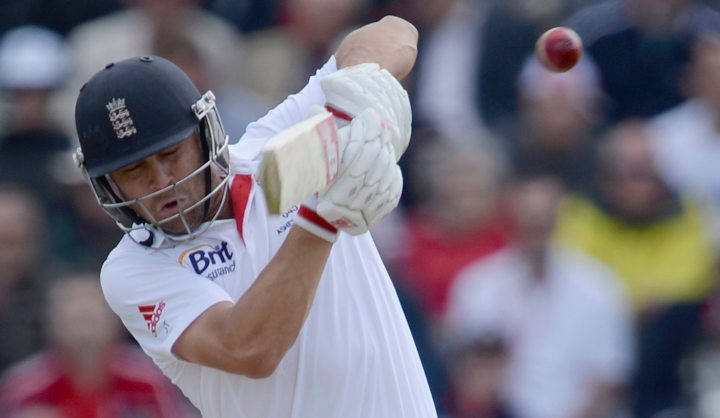Sport
Mental illness – and the high cost of macho culture in sport

Jonathan Trott will not take part in cricket for the foreseeable future, owing to a stress-related illness. He’s been suffering with it for a while, but something has now pushed him over the edge. Although the reaction was mostly positive, there is still a serious lack of understanding of how serious such issues are – and that mental illness does not discriminate. By ANTOINETTE MULLER.
Jonathan Trott has elected to opt out of the Ashes and cricket for the foreseeable future due to a stress-related illness. His decision, to speak out and admit his mental fragility, was a ballsy move. To admit that you have a problem which many still perceive to be insignificant takes some serious guts.
Yet the perception of stress and how it impacts on people is still seriously misunderstood. Although Trott’s decision was, mostly, greeted with “get well soon”, there is still a distinct lack of knowledge of how stress not only affects cognitive behaviour but how it is a fertile breeding ground for other mental health issues to occur.
“Stress is quite a generic term, but it can lead to a lot of other things. It’s definitely a contributing factor to other issues, and how you manage to deal with stress is a contributing factor to whether those other issues crop up,” Greg Wilmot, a sports and counselling psychologist at Health and Sport Incorporated, explained to the Daily Maverick.
“You can be susceptible to depression but never become depressed; however, when you encounter stress, work-related or otherwise, then it can trigger depression, panic disorder, panic attacks and other problems. Stress refers more to a generic term where one’s coping skills aren’t sufficient,” he added.
You only needed to do a Twitter search for Trott, or read comments on sites announcing the news, to realise how misunderstood the issue is and how it is something to made fun of for many, instead of something that should be treated as an illness.
England’s coach, Andy Flower, admitted that Trott had been struggling for a while. They have been aware that he’s not quite well, but the Warwickshire man still opted to join the touring party to Australia. For that, there might be many reasons. Trott might have felt okay, he might have felt like he was up for it, he might have felt like he could shrug the problems aside and just suck it up. After all, isn’t that expected of sportsmen? They need to just “be a man”. He managed to put on a brave face in a warm-up game and scored an unbeaten century in Perth. Perhaps he has been doing so for months or even years. It takes just one straw to break the camel’s back, after all.
Many will suggest that he never should have been on tour in the first place and that his failings with the bat in the first Ashes Test – where he scored 10 and nine respectively – were signs of his “running scared”. That’s tragically obtuse thinking. Andy Flower is a stern leader of men and if there had been even an inkling that Trott was not feeling up for the fight when he got on the plane, he would not have been allowed to do so. But anyone who has suffered depression or severe stress will know how convincing the lie can be that says “I’m fine”.
It would be foolish to deny that pressure did not play a part in pushing Trott over the edge, but he would not have known that this would be outcome. Pressure does funny things to people and few are under as much pressure as sportsmen working at elite level.
Pressure to perform, pressure to keep a family going, pressure to keep a marriage going, pressure to be the best, pressure to win.
“The pressure to perform is massive. And that’s not just performing in the game environment, but you need to perform in the nets, in fitness tests, score runs regularly, consistently train – and then being away from your family consistently is tough. You’re constantly under pressure and you never really get to switch off and reach a full state of rest,” Wilmot explains.
Pressure. Like a balloon filling with an open nozzle of guzzling air, and somebody forgetting to switch that nozzle off. The balloon will pop. Sometimes, the result isn’t pretty. Sometimes, somebody is smart enough to notice in time. Those are the lucky ones, and Trott is a lucky one. He had adequate support structures in place to make him feel comfortable enough to speak out and he knew that, regardless of the stigma that any sort of mental illness and weakness still holds, he would be okay if he spoke out.
Many are not so lucky, and the lack of awareness around how mental illness is, well, an illness, still lacks severely in other countries. In South Africa in particular, there is a macho culture which would make it hard for anyone to confess to suffering something as “weak” or “sissy” as depression or stress. Heaven forbid that the stress or depression is so bad that it stops you doing your job.
Gulam Bodi Tweeted: “Hahaha, joke of the day! Trott to home frm the ashes due to stress illness! Bloody man up n take the heat! Stop running for cover.” (sic)
He soon deleted his Tweet, offered an apology and wished Trott a speedy recovery. Vitriol followed Bodi like a moth to a flame, but his Tweet should be taken in context.
In a culture where macho manliness is still very prevalent, it’s a timely reminder that there is still a very long way to go in breaking the stigma of any sort of mental illness. Although it should be made clear that Trott’s issue was “stress-related” and not necessarily depression, they are both issues of the mind, which are misunderstood. Stress can be brutal and so can any other form of mental illness.
Bodi’s Tweet shows that there is still a need to educate everyone, especially professional sportsmen, on the issue. The vitriol flung at him will not do that, and just as patience and understanding is pleaded when it comes to helping Trott, patience and understanding is needed when it comes to educating others around the issue.
If one in five people suffer from depression, then there are at least two cricketers in every squad who are struggling with some sort of mental issue. Why have so few spoken out? Simple: they fear rejection, demonisation, they fear having their contracts torn up and shoved to the side lines. Instead, they grin and bear it. Trott is lucky. He has the support of the majority of cricket fans. But most importantly, he has the support of the team management.
For Trott to have achieved the success he has as an elite sportsman, even with his struggles with stress, should serve as inspiration for many. His willingness to speak about his issues should be applauded. If the issue continues to be talked about, the stigma and the challenges around understanding mental health issues continue to be broken down, and perhaps one day, there won’t be a need to write about it. DM
Photo: Jonathan Trott plays a shot caught by Australia’s Brad Haddin (unseen) during their fourth Ashes test cricket match at the Riverside cricket ground, Chester-Le-Street, northern England August 11, 2013. (REUTERS/Nigel Roddis)




















 Become an Insider
Become an Insider